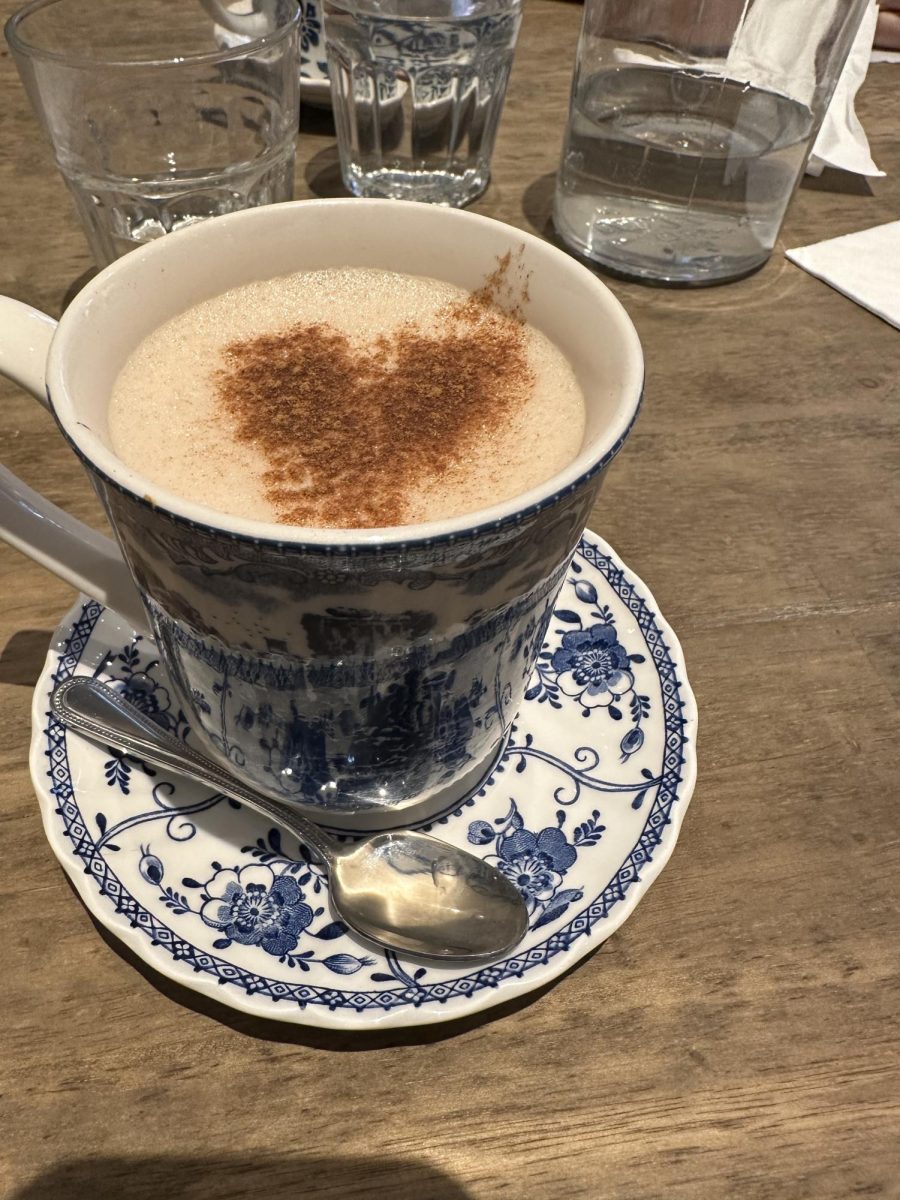When I first considered taking on the role of editor-in-chief for this paper, I didn’t foresee one of the responsibilities was sorting through an Outlook inbox full of solicitations and scams. Since the email for Tower leadership started flowing into my inbox last May, dozens of messages have come in, asking for us to sponsor stories, buy Instagram followers, or hire cleaning services for our ‘office.’ Some of these solicitations seem pretty sketchy, and I have no choice but to grade them on a scale from one to 10.
This first one resembles a poem by E. E. Cummings:
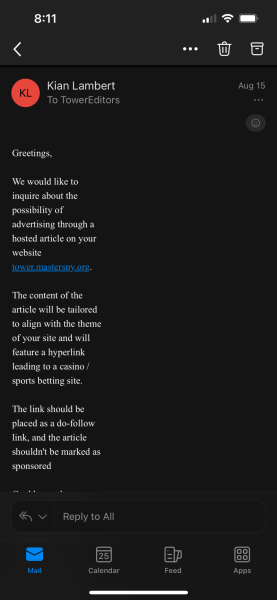
Kian Lambert seems at first like an innocent solicitation, but after reading it a bit closer, the email is fairly entertaining. Lambert plans to tailor an article that utilizes the theme of Masters Tower, to push a gambling site. Bet with thy might? In addition, the link wouldn’t be marked as sponsored. Interesting, 7/10.
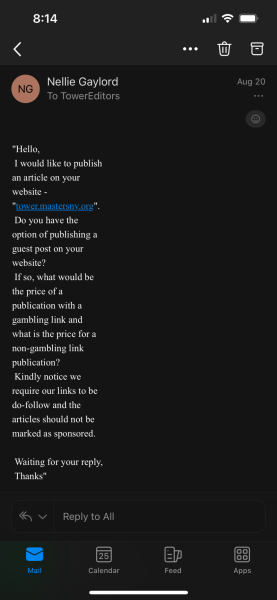
Nellie Gaylord proved that poetry-formatted gambling ad requests are becoming the mode. Although the style of her email is a bit cliche now, following Lambert, and she doesn’t quite grasp quotation marks, I will give her an extra point for politely instructing me to “kindly notice” the sketchiness. Also, she shares my dog’s name, so one more point for that. 9/10. Good job, Gaylord.
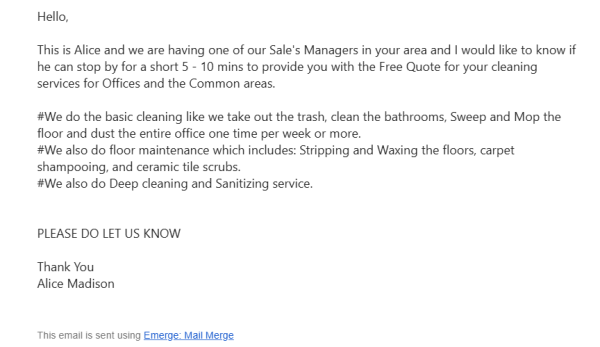
Alice Madison’s offer resonated with me less. Madison flatteringly assumes that Tower can afford an office space, which is nice enough, but is a little demanding with the line, “PLEASE DO LET US KNOW.” A little politeness goes a long way, Madison. Also, the hashtags were a bit overwhelming. 5/10.
But let’s stray a little from Tower-specific emails, and venture into those of iMessage. Up first? My shopping addiction.
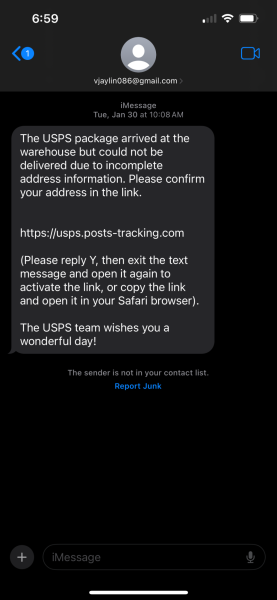
The first time one of these USPS messages popped up in my inbox, I’m sorry to say I nearly fell for it. At first, these texts can be fairly deceptive, until you take a quick glance at the sender. I’m on to you, vjaylin086@gmail.com, I don’t think you are the official USPS… These scams are sent with the intent of having the recipient click on a link and enter in all their financial and personal information, according to the United States Postal Inspection Service. These messages are easy to avoid, as long as you know that USPS will never actually send a link in a message. 4/10 for preying on my constant influx of clothing packages.
Another phishing scam, this one potentially even more effective if you are, like me, new to driving. But after all my experience with USPS, I knew what was up. Like USPS, Sunpass tolls have a warning on their official site stating that they won’t message any customers for immediate payments or actions, and instead reach out via a specific email or six digit number. The New York Tolls Services are even sneakier, the link included is nearly identical to the real one, other than the fact that it omits the ‘s’ after toll. Tricky Tricky, 6/10.
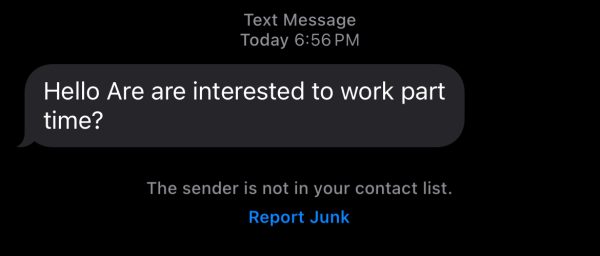
No “hi”? No “How are you”? 2/10.
Most phishing and smishing scams, (phishing being targeted scams from seemingly reliable sources, smishing being messages sent with links attempting to have people download malware or give information) require some sort of action from the recipient. So if a message seems off or unofficial, ignore it! Don’t click links, don’t respond. In a similar vein, it’s best not to respond to spam or scam calls, so that they don’t realize they found a number tied to an actual person they can target. And if an email looks like it was structured after a particular American poet, just move that on over to junk.




![IMG_0011[1]](https://tower.mastersny.org/wp-content/uploads/2024/11/IMG_00111.jpg)

